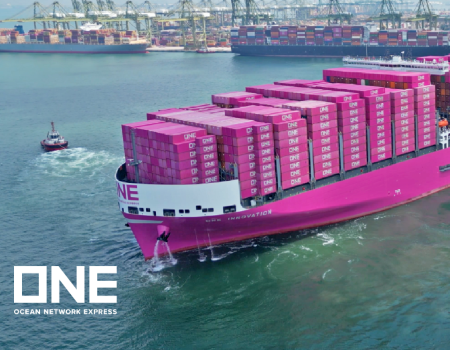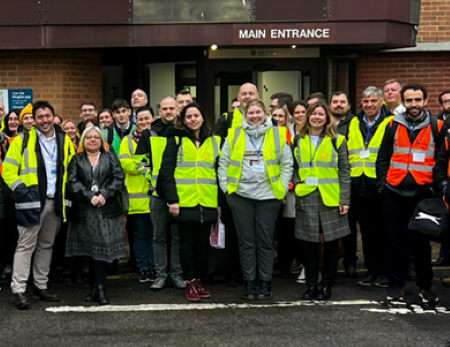2013 was the year supply chain disruptions hit the headlines – from the Bangladesh factory disaster, to the horse meat scandal and ethics issues at several mobile phone companies.
All the incidents showed how suppliers in lower level tiers of the supply chain can have a devastating impact on the financial performance and reputation of global businesses.
Adrian Chamberlain, Chief Executive of Achilles, predicts four supply chain trends likely to affect industry in the New Year, and shares tips on how to get ahead.
Mapping the supply chain
We believe that in 2014 consumers, governments and industry watchdogs will put pressure on big businesses, across a whole range of sectors, to scrutinise their operations in terms of health and safety, ethics and compliance.
Most of the high-profile issues of 2013 involved suppliers beyond tier one.
In 2014, we expect to see an increase in supply chain mapping – where companies from a wide range of business sectors work to identify exactly which companies are in their supply chains.
Once businesses know who is in their supply chain, they can scrutinise each supplier’s operations and evaluate whether companies are aligned to their own values in terms of people, planet and profit.
Monitoring and benchmarking sustainability
With increasing scrutiny on the origin of materials and the treatment of workers through all tiers of the supply chain, 2014 will mark the beginning of the end to companies paying ‘lip service’ to sustainability.
This is due in part to a raft of new legislation and direction from Governments around the world.
Conflict Minerals
From May 31 2014, companies will be required to file reports on their use of ‘conflict minerals’ – metals sourced from mines that are usually owned by, and support the activities of, terrorist groups and armed gangs.
This is the first real impact of the US Frank-Dodds Act, which requires all companies involved with these contentious elements to show due diligence in terms of tracking where the materials come from – right down through the supply chain.
The law is designed to address the link between conflicts in the Congo and the trade in precious metals. It is believed that since 1993 many millions of people have been killed as a result of wars in the Congo. The EU’s trade commissioner, Karel de Gucht, has said that it is “undeniable” that trade in minerals intensified and lengthened the slaughter.
The EU recently completed a consultation, calling for views on the potential implementation of a similar initiative to tackle conflict minerals within supply chains.
With that in mind, we would urge European companies to take proactive action now, as it’s inevitable – and right – that these requirements are extended beyond the US and into other countries.
Welfare of workers
Meanwhile, businesses should also prepare to disclose further information about the welfare of workers in their supply chain.
The Home Secretary Theresa May has asked Labour MP Frank Field to review the evidence base for a new Modern Slavery Bill. He has already said businesses should be required to disclose the steps they take to eradicate modern slavery from their supply chains.
The Home Office has published a draft version of the law and expects to publish a final version and an action plan in the Spring.
Both examples show that more than ever, CSR, health and safety, ethics, bribery, corruption, compliance and financial well-being are now critical aspects of business activity which need to be monitored and reported on very closely.
We predict that increasingly, buyers will be looking for systems to accurately record and benchmark suppliers’ performance in terms of sustainability.
The impact of new Procurement Directives
Early in 2014, the European Commission is expected to unveil the biggest raft of change in almost a decade to Utilities and Public Sector Procurement Directives. This could be a ‘double-edged sword’; providing real opportunities for suppliers including SMEs, but significant potential risk for buyers who are unprepared and could be challenged on procurement decisions.
The changes are expected to include :
- Buyers will no longer be able to impose a minimum financial turnover requirement on suppliers greater than two times the value of the contract.
- SMEs tendering for ‘above threshold’ contracts will now only be required to provide evidence of compliance when the contract is awarded.
- Clearer definition on what constitutes a ‘substantial’ or ‘material’ change to contract
The Cabinet Office is expected to enter the changes into legislation swiftly, within 12 – 18 months. As such, we would recommend buyers and suppliers get ahead of the game and act early before the changes become law. This includes checking procedures and contracts are ‘water tight’ and in line with expected legislative requirements.
Creating a single global view of supplier data
The World Trade Organisation predicts world trade growth of 4.5% in 2014. We anticipate big businesses will have a renewed focus on expanding into emerging markets.
It will become a priority for global businesses to implement the same high standards in terms of health and safety, ethics and compliance in all countries in which they operate.
In 2014 we expect to see a growing number of companies consolidating their supplier information into a centrally managed database which allows businesses to source either globally or on a country-by-country basis depending on political and economic factors.
We expect that this functionality will be used much more widely, by a whole range of sectors.
Knowledge is power and we expect that the companies who get to grips with potential issues in their supply chain will have a real USP in 2014.







